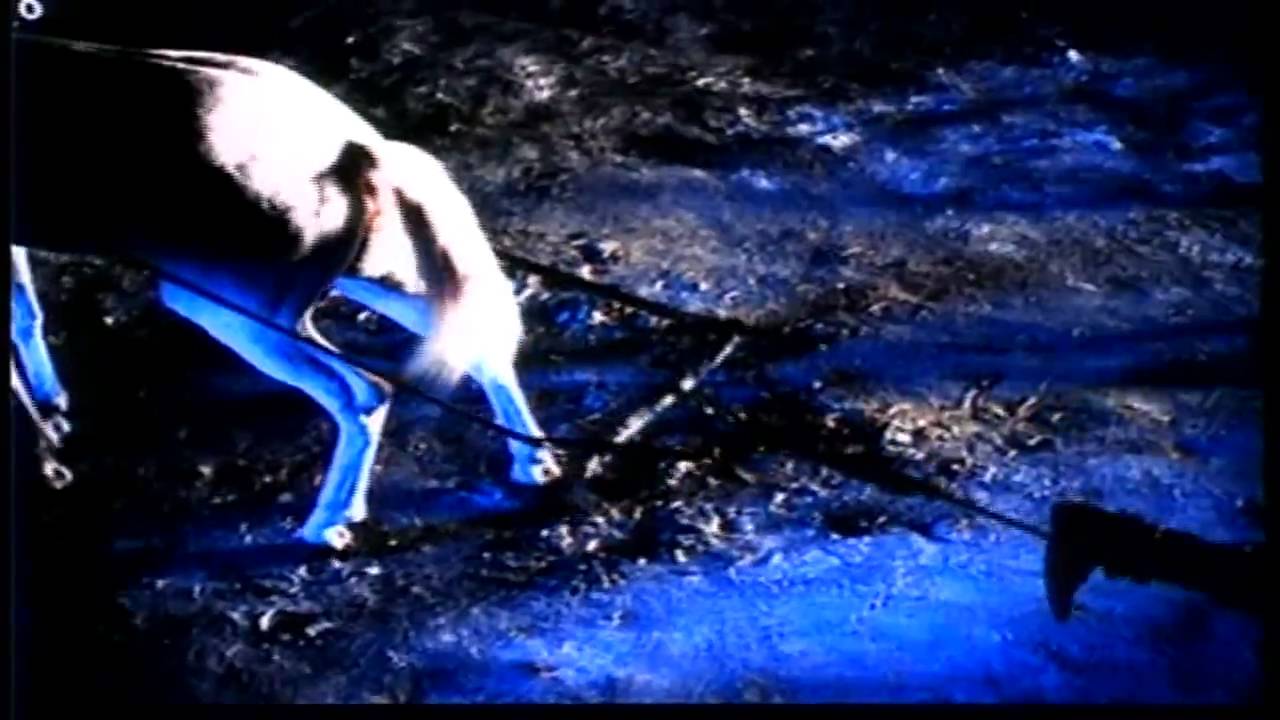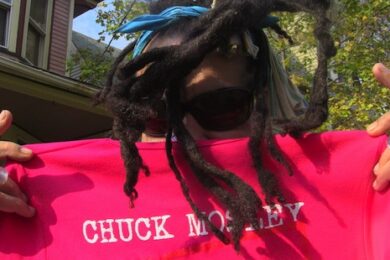In 1990, a music video for a song called ‘Epic’ offered a chilling vision of the future. It showed a young man dressed as a children’s TV presenter leaping about like a rapping granny, spitting the kind of flow only advertising executives would find passable. Had I knew then what I know now, I would have said: "Oh Jesus, this is Year Zero in a 20-year musical nightmare that will end up with Limp Bizkit being one of the biggest bands on the planet." Instead, I merely thought: "Wow, they’ve really, REALLY fucked up one of my favourite bands."
A couple of years earlier, there was a nice little San Francisco band called Faith No More, a multicultural cross-section of Bay Area scenesters – punkers, funkers, meat-and-potato metalheads and future gay icons – who crashed into my world by virtue of a 3rd generation TDK of their second album, Introduce Yourself. I loved it immediately – it had heavy bits, it had funk bits (yes, I make no bones about it – as a 15-year-old, one of my most important quests was to track down a vinyl copy of the Red Hot Chili Peppers’ Freaky Styley), it had washes of gothy keyboards, but most of all it was voiced with a charismatic, soulful melancholia I’ve rarely heard the likes of since. ‘Anne’s Song’ – probably my favourite track – masquerades as a simple soundtrack for good times, a roll call of characters in the mood to party. But further listens uncover the angst, uncertainty and sexual politics that come with something simple as "going out with some friends". As a callow youth, it was a window into a world that thrilled and scared me in equal measure.
The owner of that expressive, maudlin voice wasn’t long for the band, however. If memory serves, narcolepsy was cited as the reason for Chuck Mosley’s exit in 1988 (I had my suspicions that this was code for something more sinister, but never did find out), and he was replaced by Mr Bungle frontman Mike Patton, whose acerbic whining couldn’t be further from Mosely’s ragged croons. However, Patton’s white-boy rapping was just what MTV was looking for and FNM went from late-night cult act, where ‘We Care A Lot’ could occasionally be spotted on the likes of 120 Minutes at two in the morning, to enjoying the kind of heavy rotation from which superstars are made. I can’t say for certain that the frontman’s change of skin tone was what opened the doors for them, but they sure as hell sounded whiter. And, lest we forget, this is MTV we’re talking about – a channel, in the 80s at least, not known for its groundbreaking multicultural agenda.
This, of course, opened the doors for any number of bands peddling their suddenly marketable rap-rock hybrids. A newly neutered Red Hot Chili Peppers tricked an unexpecting world into accepting Blood Sugar Sex Magick into their homes, which would then allow them to smear their execrable output over our lives for the next twenty years. In their wake followed bands of wildly varying quality – Mordred, Infectious Grooves, Living Colour, Primus, 24-7 Spyz, Heads Up, Urban Dance Squad – until beaten into submission, we eventually allowed the likes of Kid Rock, Linkin Park, Insane Clown Posse and Limp Bizkit to install themselves as the Black CNN for white folks.
And – oh God – how could I forget the countless dreadful provincial metal bands with serious delusions of grandeur – the kind that think the more strings on your bass you have, the more serious a musician you are; and kind of band that sees nothing out of the ordinary in performing a cover version of a someone else’s cover. Yes, these are the fools who would bust out a version of ‘Easy’ in the middle of a set of otherwise stilted funk-metal accompanied by "Ooh, let’s see what this preset does" keyboard flourishes. If Faith No More thought they were being challenging and didactic by paying tribute to The Commodores, they vastly overestimated their fanbase’s resourcefulness and willingness to broaden their horizons. If anything, the opposite occurred – it gave Patton’s acolytes a molehill of superiority to sit upon and broadcast their new-found expertise on soul music: "Well, I love ‘Easy’, of course, but nothing else really grabs me. (If it was any good, Faith No More would have covered it, wouldn’t they?)" Indeed, interviews with Patton and his bandmates towards the end of the 90s displayed a marked unease at how simple it was to toss out half-formed ideas and have their audience honk and slap their flippers together in approval. They really should have called that 1991 live album: How Shall We Fuck Off, O Lord?
Worse still, the "I like Faith No More, therefore I’m better at music than you" crowd were given succour by journalists falling over themselves to heap praise on 1992’s Angel Dust. It cropped up in album of the year lists and even a few ‘most influential albums of all time’ round-ups. Although I balk at the thought that dropping a Beastie Boys sample in the middle of a song is somehow cutting edge, I’ll concede that the album is undoubtedly massively influential. Watch a few hours of Kerrang! or Scuzz these days and you’ll see the tropes on this record recycled a billion times: choppy riffs, wailing backing vocals, faux-emotive piano breaks to drive home how blinking, bloody, ruddy heavy the rest of the heaviness is. I realise it’s probably a bit unfair to blame a 20-year-old record for the stasis that modern rock is mired in, but, hey, you have to start somewhere.
By now, a few of you are undoubtedly apoplectic that I would shoot down the band that got you through school/ college/ life in whatever tedious market town it was you grew up in, and are leaping around (in your tie dye hoodies, naturally) with rage because I have dared to question Patton and co’s genius. Here’s the thing. You guys won. Faith No More’s reunion in 2009 was attended by half the population of Europe. Empires fell, planets aligned, world peace was declared etc. And rock musicians nowadays – from rapey rap-metal cretins to slightly less offensive progressive metal cretins – have Faith No More’s shitty, shitty music firmly embedded into their DNA: the influence is inescapable.
To his credit, however, Patton has spent his time away from the band building up a CV with impeccable credentials. He has worked with the likes of John Zorn, Buzz Osborne, Eyvind Kang, Otomo Yoshide, Bjork and Melt-Banana. His label Ipecac has provided a home and support for acts as diverse as the Melvins, Dalek, Neil Hamburger and his own supergroup, Tomahawk. By doing so he’s managed to become one of the most potent driving forces in avant-garde and alternative music in the last 15 or so years (or, as I like to think of it, he has delivered the world’s longest apology). When I listen to Fantomas or Tomahawk, I think to myself: “You know, it was over two decades ago when he ruined that band. I should really let it go.” But then I see him bouncing around like a twat in that video for Epic. Sorry Mike. You may indeed want it all, but you can’t have it.




